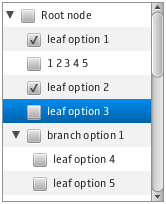FX Experience Has Gone Read-Only
I've been maintaining FX Experience for a really long time now, and I love hearing from people who enjoy my weekly links roundup. One thing I've noticed recently is that maintaining two sites (FX Experience and JonathanGiles.net) takes more time than ideal, and splits the audience up. Therefore, FX Experience will become read-only for new blog posts, but weekly posts will continue to be published on JonathanGiles.net. If you follow @FXExperience on Twitter, I suggest you also follow @JonathanGiles. This is not the end - just a consolidation of my online presence to make my life a little easier!
tl;dr: Follow me on Twitter and check for the latest news on JonathanGiles.net.
by Jonathan Giles | Jun 27, 2010 | Links
A fairly quiet week in the JavaFX world this week, but nevermind, I’m sure it’s just because the majority of you are too busy working on your blog masterpieces for next week 🙂 Regardless, there are some very useful links in this weeks post, so have at it, and as always please do flick me an email (or twitter message) with any link you think is worthy of being included.
That’s all folks. Thanks to everyone who took the time to post about what they’re working on, and for those of you who didn’t, I’m looking forward to your blogging masterpieces next week 🙂

by Jonathan Giles | Jun 26, 2010 | Controls, Performance, UI Design
Ok, I know we’ve been going on about custom cells / cell factories a bit recently, but I wanted to do one more post about a very useful topic: caching within cell content.
These days ‘Hello World’ has been replaced by building a Twitter client, so I’ve decided to frame this topic in terms of building a Twitter client. Because I don’t actually care about the whole web service side of thing, I’ve neglected to implement the whole ‘real data’ / web services aspect of it. If you want to see an actual running implementation with real data, have a look at William Antônio’s Twitter client, which is using this ListCell implementation.
(more…)
by Jonathan Giles | Jun 25, 2010 | Links
Recently a few useful documents turned up on the web related to JavaFX, so I thought I’d briefly provide the links to them in case you weren’t aware of their existence.
Firstly, the JavaFX team updated the JavaFX 1.3 API documentation. There is a bunch of new content for much of the API, and improved package documentation (which you can see by clicking the arrow on the main page relevant to the package you’re interested in). In particular, the javafx.animation, javafx.scene, javafx.scene.control and javafx.scene.chart packages have a bunch of useful information.
Secondly, with the huge improvements to CSS support in JavaFX 1.3, we’ve published a comprehensive CSS guide. This is a huge resource to people interested in styling JavaFX user interfaces, as it lists all available css properties for each control.
Finally, for those interested in ensuring your coding style is following convention, the best resource is Tor Norbye’s JavaFX coding conventions document. It’s not the definitive style guide for JavaFX, but it is a great starting point. I think there is only one difference between his conventions and what we use internally, and he notes this in the page.
There we go – a few very useful resources that you may be interested in perusing in a spare moment.
by Jonathan Giles | Jun 20, 2010 | Links
Welcome to another week of JavaFX links folks. This week there is a good bunch of interesting news and blog posts, so I hope that there is something here for everyone. As always feel free t get in touch with me if you have a link you’d like to have included.
That’s us for another week. Keep churning out the good posts and news and I’ll keep linking to you. Catch you all in a weeks time.

by Jonathan Giles | Jun 17, 2010 | Controls
Yuck, ‘CheckBoxTreeView’ – what a mouthful. Anywho – I was just looking at a very interesting JavaFX session slidedeck from Jazoon presented by AdNovum Informatik AG titled ‘JavaFX – The Condemned Live Longer‘. It is a great slide deck as they are a company that have invested a lot of time researching the available RIA technologies, and they are pretty upfront with what they like and don’t like in JavaFX, and what their developer experience has been.
(more…)


